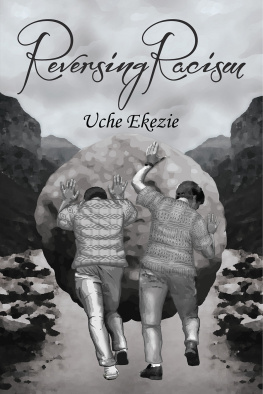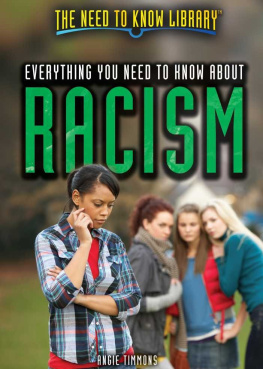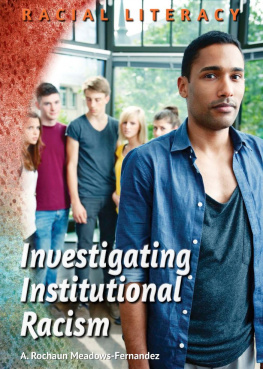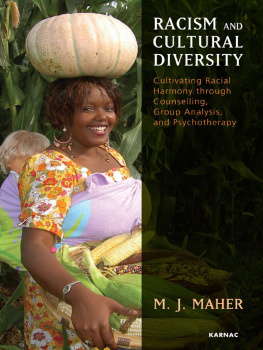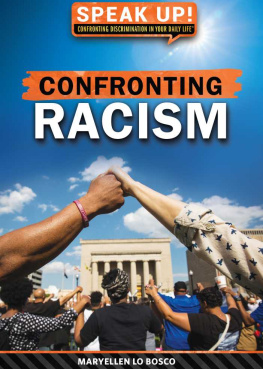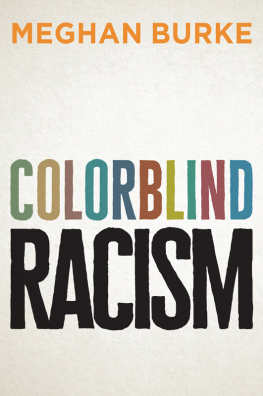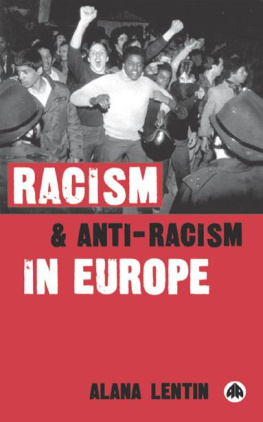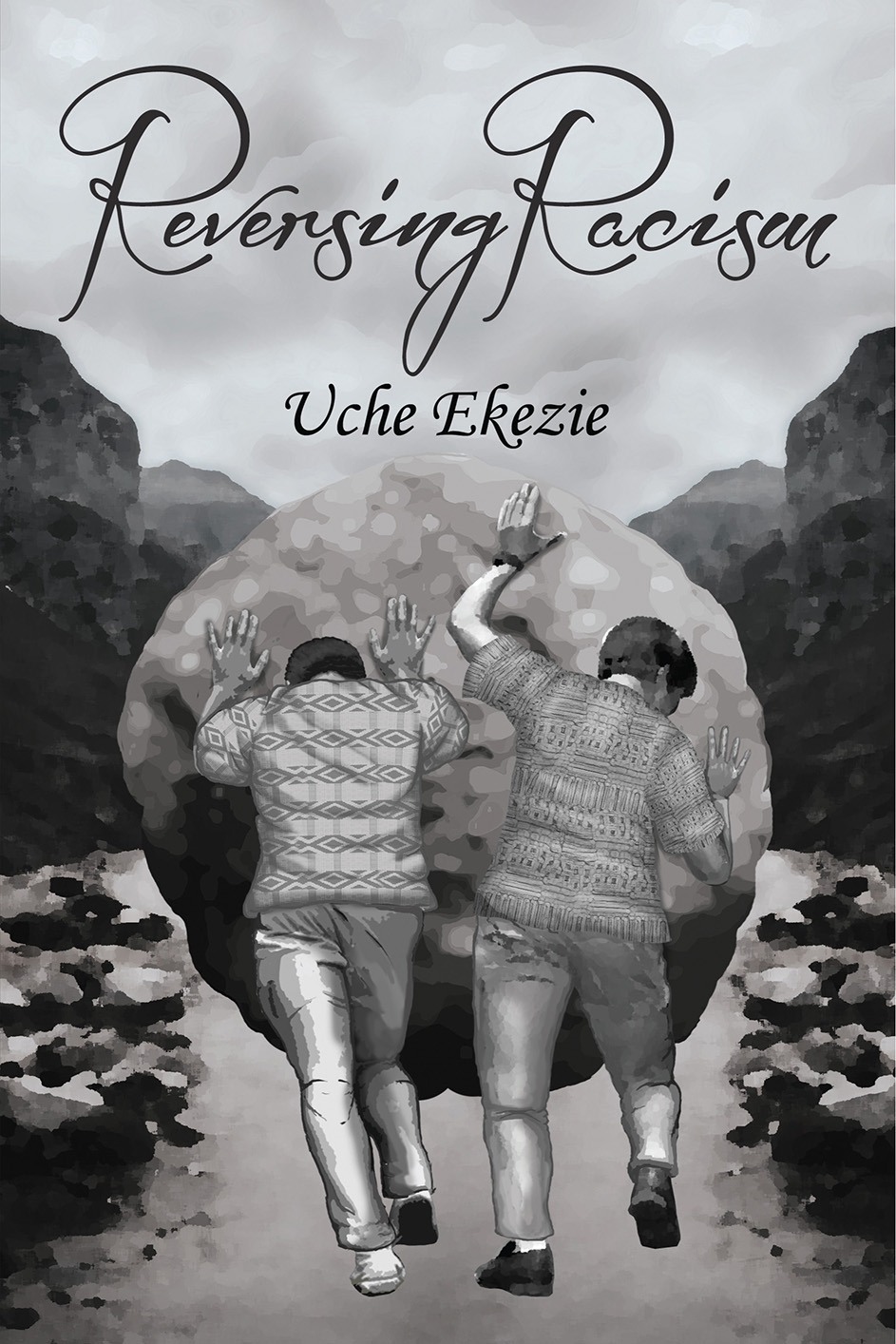R EVERSING R ACISM
R EVERSING R ACISM
Uche Ekezie

2018 Uche Ekezie
Reversing Racism
All rights reserved. No portion of this book may be reproduced, stored in a retrieval system, or transmitted in any form or by any meanselectronic, mechanical, photocopy, recording, scanning, or otherexcept for brief quotations in critical reviews or articles, without the prior written permission of the publisher.
Published in Nashville, Tennessee, by Elm Hill, an imprint of Thomas Nelson. Elm Hill and Thomas Nelson are registered trademarks of HarperCollins Christian Publishing, Inc.
Elm Hill titles may be purchased in bulk for educational, business, fund-raising, or sales promotional use. For information, please e-mail .
All Scripture quotations, unless otherwise indicated, are taken from the New King James Version. 1982 by Thomas Nelson. Used by permission. All rights reserved.
Library of Congress Cataloging-in-Publication Data
Library of Congress Control Number: 2018959520
ISBN 978-1-400306237 (Paperback)
ISBN 978-1-400306244 (eBook)
Information about External Hyperlinks in this ebook
Please note that footnotes in this ebook may contain hyperlinks to external websites as part of bibliographic citations. These hyperlinks have not been activated by the publisher, who cannot verify the accuracy of these links beyond the date of publication.
If there is no struggle, there is no progress.
F REDERICK D OUGLASS
In loving memory of my late sister Angela Chineme Nwanya (nee Ekezie), a senior researcher with the Nigerian Raw Materials Research and Development Council, who passed away in September 2011 at just age forty-four.
We still miss you dearly big Sis.
A CKNOWLEDGEMENT
I appreciate the contributions of my in-house editor, my lovely wife and mother of my three wonderful children, Joy Chiamaka Ekezie, a pediatrician at the Lagos University Teaching Hospital.
C ONTENTS
T he resurgence of nationalist movements in the West from 2016 once again pitches populist conservatives who seem bent on preserving their societies homogeneity and to an extent, way of life, against pluralist liberals more open to the idea of granting increased legitimacy and inclusion to minority groups. Such rounds of debate are not new, as these traditional opposites have been at it for as long as human existence, they just happen to go by varied names in different societies. Whether you choose to call them Conservatives and Liberals or the Right and the Left, it remains the same traditional clash of ideology; to either maintain the status quo, or accept some potentially disruptive change? It is said that the only constant thing in life is change, hence regardless of how resolute anti-change proponents may be received; there always comes a time when the momentum of social dynamics makes these changes in every society inevitable. The usual question is for how long the Right in each instance of social unrest can hold out before yielding to the forces of change.
This latest rift has stoked and brought to the fore factional and racial tensions which had for some time been consigned to the background. There are increased reports of racial profiling by law enforcement officers, a general rise in apathy towards immigration and minority groups, and even more open confrontation between both sides of the debate. This is not because the number of race related incidents ever went down and is suddenly on the rise again. On the contrary, the problem never abated; it is just that victims are no longer comfortable accepting discrimination as the norm and are more likely to speak up now more than in the past. This has led to a spike in the number of reports of racism in the last couple of years. The situation is not dissimilar to the flood of disclosures that occurred when sexual harassment allegations were leveled against some major names in the US movie industry, which became known as the Me-Too Movement which shook Hollywood in 2017. Additionally, the influence of social media with its wide coverage in shaping public consciousness has literally made anyone with a smart phone a potential news reporter and consumer these days.
Racism has once again become a major subject of public debate and is likely to continue so as societies become more globalized and diverse. The imminent new liberal world order with its message of diversity and inclusion; took root in the aftermath of the Second World War and is likely destined to survive this current resistance by nationalists in Western Europe and more importantly the United States.
This book is written in an effort to tackle what in recent times has become a significant issue and the elephant in the room whenever equity is being discussed in diverse multiracial settings, especially as globalization continues as a disruptive force around the world.
The title of the book Reversing Racism is not to be confused with Reverse Racism or Reverse Discrimination; which is retaliatory discrimination perpetrated by minorities as a reaction to racism, and in my opinion, does more to fuel rather than remedy the problem of racism. Targeting hostilities or bias at the generality of a people because of their race cannot be viewed as anything other than Racism, hence Reverse Racism is condescending to the troughs of human behavior that is responsible for Racism to begin with, and I do not encourage it.
It begins, like most books on the subject, by giving the reader a view of the root cause and different expressions of racism. But as you progress, the book provides suggestions on what victims of racism can do on their part to proactively reverse circumstances that invite racism. The intent of this book is not to exacerbate racial tensions; instead it is a call to positive action that can roll back the symptoms which perpetuate this scourge with an action plan that aims to reduce the gulf between the haves and the have-nots. It is a gathering of my thoughts on what minorities in the West and people of African descent, as the main victims of racism can do; not necessarily to confront racism head on, but to subtly address the traits that encourage racists to behave in the way they do.
It is great to have laws that bar dehumanizing speech in public spaces like the media, but such laws will not stop racists from using obscenities in the privacy of their homes and offices. Prejudices are not innate, but socially acquired, and since such acquisition is predominantly interactive, it is this social discrimination and cognitive prejudice in homes, offices and monoracial discourse that perpetuates racism from generation to generation, conferring it with a status of tradition. To ebb this trend and push it back will be no mean feat, and requires a battle for hearts and minds, that aims at removing those prevailing malignant conditions which racists use as justification for their behavior. This book suggests what colored people can do on our part to etch away at racism, one chunk at a time.
I encourage you to do more than just read this book. Feel free to use a hi-lighter pen to mark sections in the book that may or may not appeal to you in one way or the other. In the end, my hope is that it provides an effective reference for doing your part to roll back racism. It is of course predominantly based on my personal experiences and opinions on the subject; and I by no means claim to be an expert much less a final authority on the matter. So, do not be surprised if we differ considerably on any of the points I have raised. In addition, to better appreciate what these experiences are, the book begins with a little background on myself and incidents that prompted me to choose racism as a subject of the book, before delving into the subject matter in the subsequent chapters.

